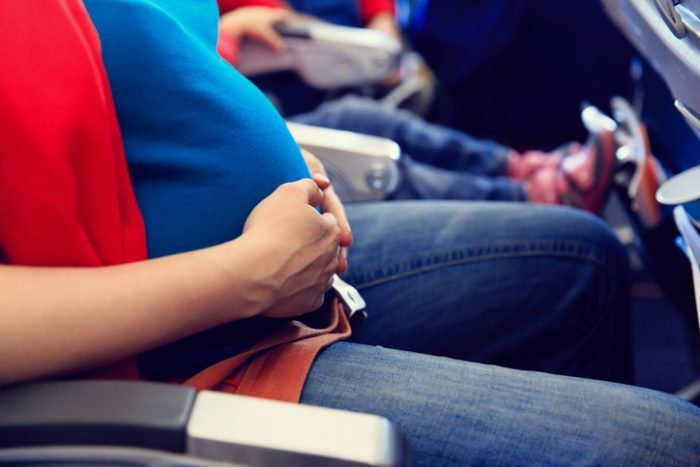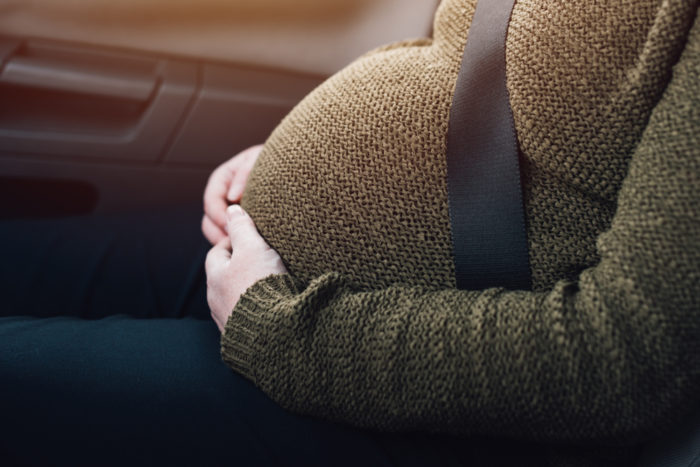Contents:
- Medical Video: Ariana Grande Carpool Karaoke
- Is it safe to go home while pregnant?
- Tips on going home during pregnancy to stay healthy during the trip
- Mudik when pregnant by train
- Mudik during pregnancy by plane
- Mudik while pregnant by car and bus
- Mudik during pregnancy by boat
Medical Video: Ariana Grande Carpool Karaoke
Traveling far during pregnancy is a concern for many women, including going to Lebaran. The typical Lebaran moment with going home to my hometown is awaited at the end of Ramadan. Homecoming during pregnancy can be done safely, as long as you make the right preparation.
Is it safe to go home while pregnant?
Some women may choose not to travel far like the Eid homecoming in the first 12 weeks of pregnancy or the first trimester due to nausea and feel very tired or often experiencemorning sicknessat the beginning of this pregnancy. The risk of miscarriage is also higher in the first three months.
Meanwhile, going home Lebaran in the third trimester of pregnancy can be very tiring and uncomfortable. So, more feel safe doing homecoming Lebaran in the second trimester of pregnancy, which is between the fourth to sixth month.
Means going home during pregnancy should only be done at second trimester of pregnancy? Not really, actually if your pregnancy is healthy and there are no complications, you feel strong, and your obstetrician allows you to go home at any gestational age. However, that is done as long as you have prepared yourself well.
Tips on going home during pregnancy to stay healthy during the trip
With the right precautions and travel insurance, most women can safely go home even when pregnant.
Wherever you go, find out what health facilities are at your destination if you need urgent medical care. It's best to always bring your maternity medical records so that you can give your doctor relevant information if needed.
Make sure your travel insurance protects you for all possibilities, such as medical care related to pregnancy during labor, preterm birth or other conditions related to your pregnancy.
Whether you ride a car, bus, train or plane, here are some general tips going home during pregnancy that need attention.
- Wear your seat belt with a cross strap between your breasts and the lap strap over your pelvis under your stomach, not right on your stomach.
- Drink enough and continue to eat for your baby's health, even if you don't have appetite on the road.
- If you choose going home by bus, make sure there is a toilet on the bus.
- Buses tend to have narrower spaces and smaller toilets, so you should keep sitting when the bus moves to be safer. If you have to use a restroom, be sure to hold the seat to maintain balance.
- Pause to rest and stretch your legs to maintain blood circulation if you travel by land by car.
Mudik when pregnant by train
If you want to go home by train, try to order a seat close to the toilet. Especially if you often experience nausea and vomiting during pregnancy. After all, pregnant women usually urinate more often.
If you travel by train for a long time, prepare supplies for various healthy foods on the road or for sahur and iftar.
You can also do various light stretches during the trip. For example, twisting your shoulders or body and stretching your legs. Leg stretch is quite easy to do, lift your legs and bend towards the stomach then straighten forward (stretch) then lower again. Repeat on both feet several times.
Mudik during pregnancy by plane
Getting on a plane during pregnancy is not dangerous for you or your baby, but discuss any health problems or pregnancy complications with your midwife or doctor before you leave.
The chances of experiencing labor naturally are higher after 37 weeks or about 32 weeks if you are pregnant with twins. Also, maybe some airlines won't let you fly towards the end of pregnancy.
After 28 weeks of pregnancy, airlines usually ask for a letter from your obstetrician to confirm your date of birth and that you are not at risk of complications.
Long distance travel or more than five hours has a small risk of blood clots (deep vein thrombosis, or DVT). To prevent this, you should drink plenty of water and move regularly, every 30 minutes or more. You can buy a pair of special stockings at the pharmacy to prevent DVT.
Mudik while pregnant by car and bus
Fatigue and dizziness often occur during pregnancy so it's important if you go home with a car to drink regularly, eat natural foods that provide energy (such as fruit and nuts) and stop regularly for rest. Keep air circulating in the car.
Road accidents are one of the most common causes of injury to pregnant women. Avoid driving alone during the trip back and forth.
Mudik during pregnancy by boat

Some ships may refuse to bring women who are pregnant, especially in the third trimester. Make sure the ferry policy that you will be riding before you order it.
For longer boat trips, such as cruises, find out if there are facilities onboard to handle pregnancy and medical services during shipping. If an emergency occurs, the ship may have to dock at the nearest island or port immediately. So, you should first make sure what your shipping route is to your hometown and how safe it is for your pregnancy.















